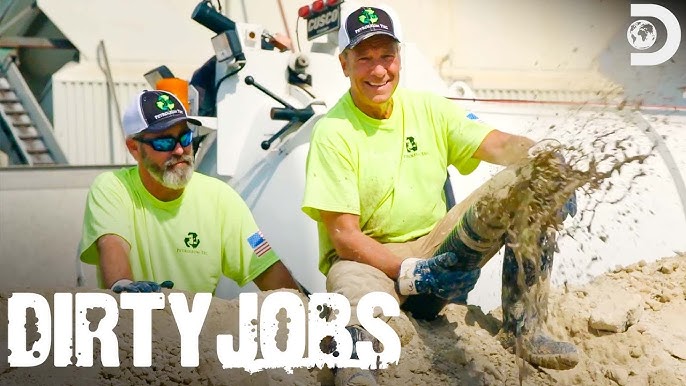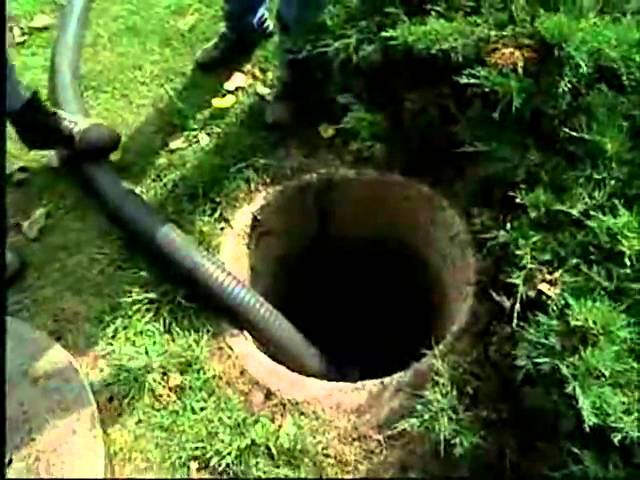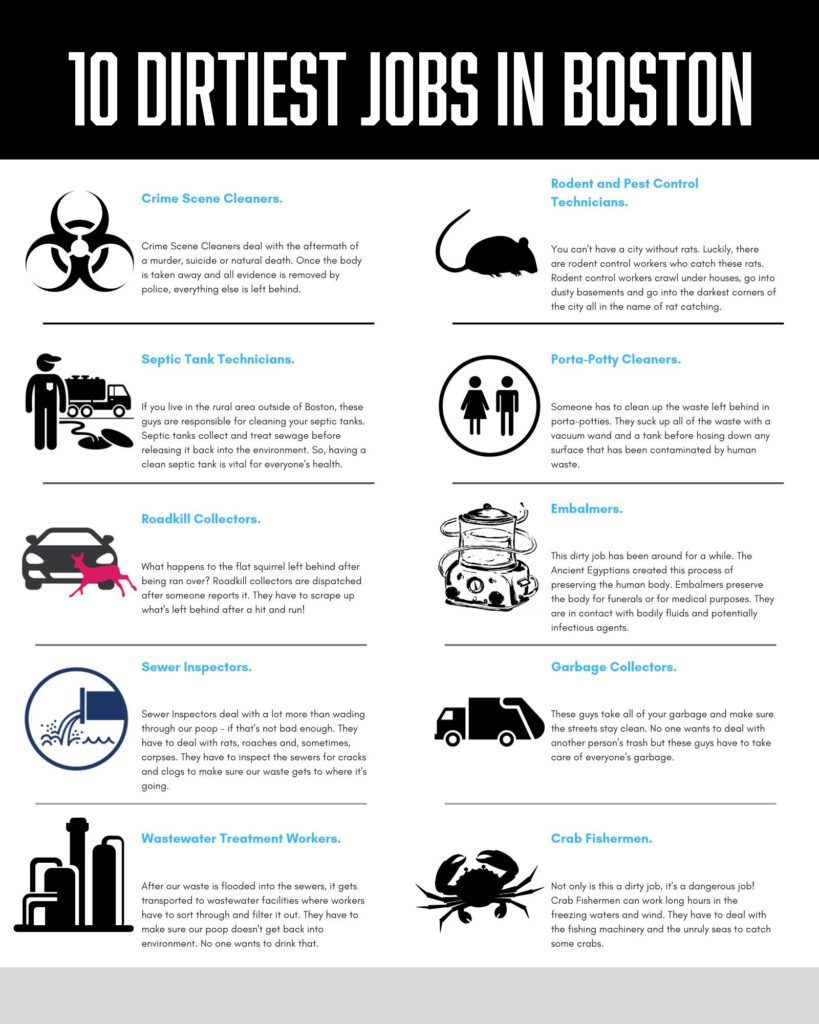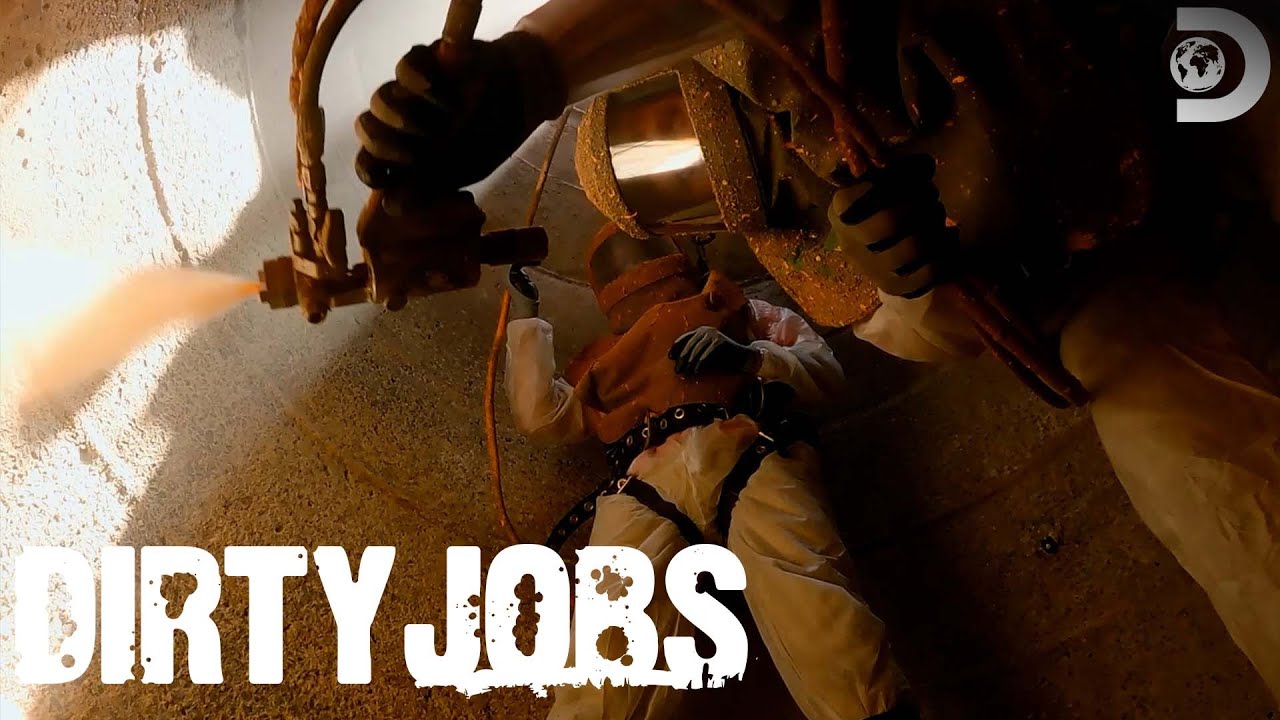Are you curious about what goes on behind the scenes of a crucial waste management role? Look no further than Dirty Jobs Septic Tank Cleaner! This innovative product takes you on a journey behind the scenes, revealing the vital work done by septic tank cleaners. Say goodbye to unpleasant odors and clogged drains as you explore the world of waste management with Dirty Jobs. Get ready to gain a whole new appreciation for the importance of septic tank cleaning in keeping our communities clean and healthy.
The Importance of Septic Tank Cleaning
The Function of Septic Tanks
Septic tanks are an essential component of a homes’ wastewater management system. They are responsible for collecting and storing the sewage and wastewater that flows from the various drains in a house. A septic tank typically consists of two main chambers: one for solid waste settlement and another for liquid waste filtration. The solid waste settles at the bottom, while the liquid waste flows out through an outlet pipe and into a drain field, where it is further treated and eventually returned to the environment.
The Consequences of Neglecting Septic Tank Maintenance
Neglecting the maintenance of your septic tank can have serious consequences. Over time, solid waste accumulates in the tank, causing it to fill up. If the tank becomes too full, it can lead to blockages and backups in your plumbing system, resulting in clogged drains and toilets. This can cause unpleasant odors, water damage, and even sewage backups in your home. Additionally, neglecting septic tank maintenance can lead to costly repairs or even the need for a complete replacement of the septic system.
The Role of Septic Tank Cleaners
Septic tank cleaners play a crucial role in maintaining the functionality and efficiency of septic systems. These professionals are responsible for performing routine cleaning, pumping out accumulated solids, and ensuring that the tank is in good working condition. By regularly cleaning and maintaining septic tanks, they help prevent blockages, backups, and costly repairs. They also contribute to the proper treatment and disposal of wastewater, ensuring the health and safety of the environment and the community.
Job Overview
A Day in the Life of a Septic Tank Cleaner
As a septic tank cleaner, your days will be filled with physically demanding and sometimes dirty work. You will typically start your day by reviewing your daily schedule and planning your routes to reach the different locations where septic tank cleaning is required. Once on-site, you will assess the condition of the tank, prepare the necessary equipment, and begin the cleaning process. This may involve pumping out the tank, removing solid waste, cleaning and disinfecting the tank, and inspecting for any repairs or damages. You will also interact with homeowners, explaining the process and answering any questions they may have.
Required Skills and Training
To excel in this profession, you need a combination of technical skills, physical endurance, and customer service abilities. A good understanding of the workings of septic systems is essential, as is the ability to operate specialized equipment and tools. Strong problem-solving skills and attention to detail will help you identify potential issues with the septic system. Physical fitness is crucial to handle the physical demands of the job, as it often involves heavy lifting, repetitive movements, and working in tight spaces. Lastly, good communication and customer service skills will enable you to engage with homeowners, address their concerns, and provide a positive experience.
Hazards and Safety Measures
Working as a septic tank cleaner can expose you to various hazards, including toxic gases, bacteria, and physical injuries. Proper safety measures are therefore essential to protect yourself on the job. Wearing appropriate protective gear, such as gloves, eye protection, and respiratory masks, is crucial to safeguard against harmful substances. Following proper handling and disposal protocols for waste materials is necessary to prevent contamination. Regular training and adherence to safety guidelines will help minimize risks and ensure a safe working environment.

Equipment and Tools
Pumping Trucks and Vacuum Systems
Pumping trucks equipped with powerful vacuum systems are the backbone of a septic tank cleaner’s equipment. These trucks are designed to pump out the contents of septic tanks efficiently and hygienically. The vacuum systems create suction that allows for the removal of both liquid and solid waste from the tank. The waste is then transported to a treatment facility or an approved disposal site for proper handling.
Protective Gear
When working with septic tanks, it is crucial to wear appropriate protective gear to minimize exposure to hazardous substances. This gear includes gloves, eye protection, and respiratory masks to protect against toxic gases, bacteria, and other potential contaminants. Wearing durable and waterproof boots is also recommended to protect against possible spills or leaks.
Specialized Tools
In addition to pumping trucks, septic tank cleaners utilize a range of specialized tools to perform their duties effectively. These tools may include sewer rods or augers for clearing blockages, inspection cameras to assess the condition of the tank and its components, and pressure washers or brushes for cleaning and disinfection purposes. By utilizing these specialized tools, septic tank cleaners can ensure a thorough and efficient cleaning process.
Septic Tank Cleaning Process
Initial Assessment and Preparation
Before starting the cleaning process, a septic tank cleaner will conduct an initial assessment of the tank to evaluate its condition and determine the necessary steps. This assessment may involve measuring the accumulated solids, checking for any signs of damage or leaks, and identifying potential blockages. Once the assessment is complete, the cleaner will prepare the equipment and tools needed for the cleaning process.
Pumping Out the Tank
The first step in cleaning a septic tank is pumping out the accumulated liquids and solids. Using the powerful vacuum system on their truck, the cleaner will create suction to remove all the contents from the tank. This process involves inserting the vacuum hose into the tank through the access port and allowing the vacuum system to remove the waste efficiently. The extracted waste is then stored and transported for proper treatment or disposal.
Removing Solid Waste
Once the tank is pumped out, the cleaner will focus on removing any remaining solid waste that has settled at the bottom. This may involve using specialized tools such as rods or augers to break up and remove stubborn solids. By removing the solid waste completely, the cleaner ensures the tank is thoroughly cleaned and ready for the next stages of the cleaning process.
Cleaning and Disinfecting
After the solid waste is removed, the cleaner will clean and disinfect the tank’s interior to eliminate any remaining bacteria or odor-causing substances. This may involve using pressure washers, brushes, or other cleaning tools to thoroughly scrub the walls and surfaces of the tank. Disinfectant agents may be used to kill any remaining bacteria and ensure a sanitary environment within the tank.
Inspection and Repairs
Once the cleaning and disinfection process is complete, the cleaner will inspect the tank for any signs of damage, leaks, or wear and tear. Any necessary repairs or replacements will be identified and addressed promptly to ensure the tank’s proper functionality and prevent potential issues in the future. This thorough inspection is essential to maintain the longevity and efficiency of the septic system.

Environmental Impact and Regulations
Wastewater Treatment and Disposal
Septic tank cleaning plays a crucial role in the proper treatment and disposal of wastewater. The extracted waste is transported to treatment facilities, where it undergoes processes to remove harmful bacteria, solids, and other contaminants. After treatment, the water is either safely released back into the environment or reused for purposes such as irrigation. By adhering to strict guidelines and regulations, septic tank cleaners ensure that wastewater is treated responsibly and does not pose a threat to public health or the environment.
Adherence to Local and State Regulations
Septic tank cleaning is subject to regulations set by local and state authorities. These regulations dictate how often septic tanks should be cleaned, the proper handling and disposal of waste materials, and the adherence to health and safety standards. It is essential for septic tank cleaners to stay informed about these regulations and comply with them to maintain the environmental and public health standards set by the authorities.
Challenges and Rewards
Physical Demands and Dirty Work Environments
Septic tank cleaning can be physically demanding and often involves working in dirty and confined spaces. The job requires manual labor, including heavy lifting, repetitive movements, and working in various weather conditions. However, for those who enjoy physical work and overcoming challenges, this profession can be rewarding as it offers a unique sense of accomplishment.
Importance of Professionalism and Customer Service
As a septic tank cleaner, you will interact with homeowners who rely on your expertise and professionalism to maintain their septic systems. Excellent customer service skills are essential to ensure a positive experience for homeowners, answer their questions, and address any concerns they may have. Delivering exceptional service increases customer satisfaction and helps build a strong reputation in the industry.
The Satisfaction of Providing a Vital Service
Although septic tank cleaning may not always be glamorous, it provides an essential service that directly impacts the health and well-being of communities. By ensuring the proper functioning of septic systems, septic tank cleaners contribute to the protection of public health and the environment. This sense of purpose and the knowledge that you are making a difference can be highly satisfying and rewarding.

Career Opportunities and Outlook
Job Growth and Demand
The demand for septic tank cleaners is expected to continue growing due to the increasing population and the need for proper wastewater management. As more homes and buildings are constructed in both rural and urban areas, the demand for septic tank cleaning services will rise. This provides stable career opportunities for those interested in this field.
Advancement Potential
Although septic tank cleaning may be an entry-level position, there is potential for career growth and advancement. With experience and additional training, septic tank cleaners can expand their skill set and take on more specialized roles within the field. This may include becoming a supervisor, inspector, or even starting their own septic tank cleaning business.
Potential Income
The income of septic tank cleaners can vary depending on factors such as location, experience, and the number of clients they serve. However, on average, septic tank cleaners can earn a reasonable income that is commensurate with the physical demands and responsibilities of the job. As the demand for their services continues to grow, there is potential for increased earning potential in the future.
Frequently Asked Questions
How often should septic tanks be pumped?
The frequency of septic tank pumping depends on several factors, including the size of the tank, the number of residents in the household, and the amount of wastewater generated. As a general rule, septic tanks should be pumped every three to five years. However, it is best to consult with a professional septic tank cleaner who can assess your specific situation and recommend an appropriate pumping schedule.
Can I clean my own septic tank?
Cleaning a septic tank is a complex and potentially hazardous task that requires specialized equipment and knowledge. It is highly recommended to hire a professional septic tank cleaner rather than attempting to clean the tank yourself. Professionals have the necessary skills, training, and equipment to ensure that the cleaning process is performed safely and effectively.
Is the job of a septic tank cleaner dangerous?
The job of a septic tank cleaner can involve certain risks and hazards, including exposure to toxic gases, bacteria, and physical injuries. However, by following proper safety measures, wearing protective gear, and adhering to guidelines and regulations, these risks can be minimized. With the right training and precautions, septic tank cleaning can be carried out safely and efficiently.

Conclusion
Septic tank cleaning is a vital and necessary service that ensures the proper functioning of septic systems and the responsible treatment and disposal of wastewater. By maintaining septic tanks, septic tank cleaners play a crucial role in protecting public health and the environment. While the job may involve physical demands and sometimes dirty work environments, it offers rewarding career opportunities and the satisfaction of providing an essential service. So, next time you consider the importance of waste management, remember the hardworking professionals behind the scenes – the septic tank cleaners.
